ManuFuture Today Network University Team Members
Purdue University
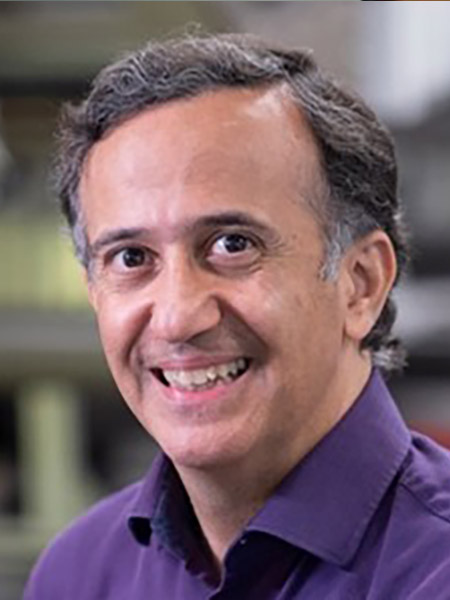
Ali Shakouri, Professor of Electrical and Computer Engineering
Director of SMART Industry Consortium at the Birck Nanotechnology Center and PI for NSF Future Manufacturing Grant
Diplome d'Ingenieur, Ecole Nationale Superiere des Telecommunications, Paris; Ph.D., California Institute of Technology, Pasadena.
His areas of research include quantum electronics, nano and microscale heat and current transport in semiconductor devices, thermoelectric/thermionic energy conversion, submicron thermal imaging, micro refrigerators on a chip and novel optoelectronic integrated circuits. His group studies nanoscale heating and electrothermal energy conversion to improve electronic and optoelectronic devices. He has also developed novel AC imaging techniques to obtain thermal maps with sub diffraction-limit spatial resolution and 800ps time resolution. They are applying similar methods to enable real-time roll-to-roll process monitoring. They are working with two dozen faculty at Purdue from colleges of Engineering, Science, Agriculture, Polytechnic and Pharmacy to manufacture low-cost smart internet of thing (IoT) devices and communication network. As a part of Wabash Heartland Innovation Network, they are developing community IoT testbeds in advanced manufacturing and high-tech agriculture in the ten counties around Purdue.
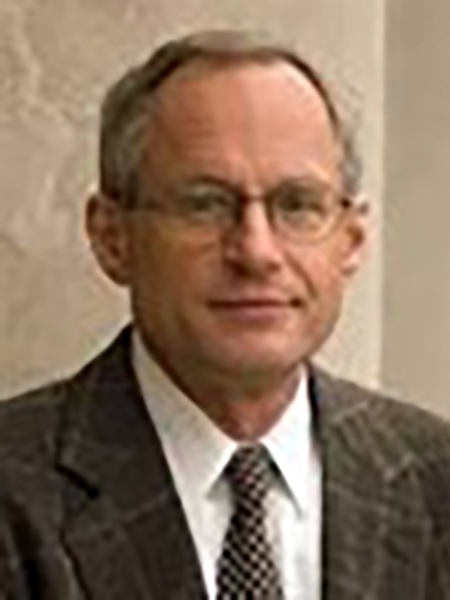
Jan P. Allebach, Hewlett-Packard Distinguished Professor of Electrical and Computer Engineering
BSEE, University of Delaware; Ph.D. Princeton University.
His current research interests include image rendering, image quality, color imaging and color measurement, printer and sensor forensics, and digital publishing. The results of his research have been licensed to major digital printing and imaging vendors and can be found in products that have sold hundreds of millions units worldwide. Prof. Allebach has published over 90 papers in refereed journals and over 232 conference publications. He is inventor on 15 issued patents.
Prof. Allebach is a member of NAE, Fellow of the IEEE Signal Processing (SP) Society, the Society for Imaging Science and Technology (IS&T), and SPIE. He has been especially active with the IEEE SP Society and IS&T. He has served as Distinguished/Visiting Lecturer for both societies, and has served as an officer and on the Board of Directors of both societies. Prof. Allebach is a past Associate Editor for the IEEE Transactions on Signal Processing and the IEEE Transactions on Image Processing. He is presently Editor for the IS&T/SPIE Journal of Electronic Imaging. He received the Senior (best paper) Award from the IEEE Signal Processing Society and the Bowman Award from IS&T. In 2004, he was named Electronic Imaging Scientist of the Year by IS&T and SPIE.
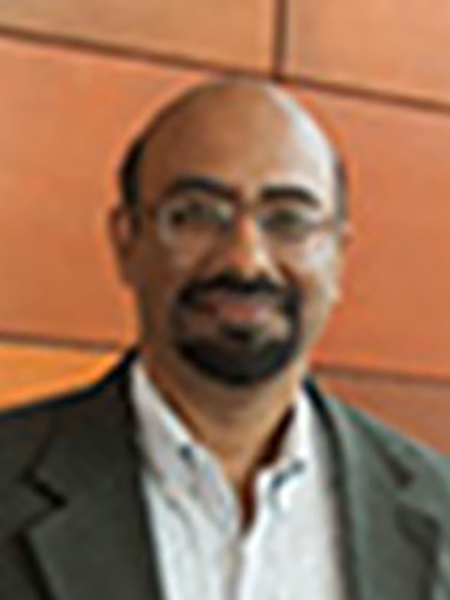
Muhammad Ashraful Alam, Jai N. Gupta Professor of Electrical and Computer Engineering
BSEE, Bangladesh University of Engineering and Technology; MS, Clarkson University; Ph.D. Purdue University.
His research and teaching focuses on physics, simulation, characterization and technology of classical and emerging electronic devices. Dr. Alam's research has broadened to include flexible electronics, solar cells, and nanobiosensors.
From 1995 to 2003, he was with Bell Laboratories, Murray Hill, NJ, where he made important contributions to reliability physics of electronic devices, MOCVD crystal growth, and performance limits of semiconductor lasers. He is a fellow of the AAAS, IEEE, and APS and received the 2006 IEEE Kiyo Tomiyasu Award for contributions to device technology.
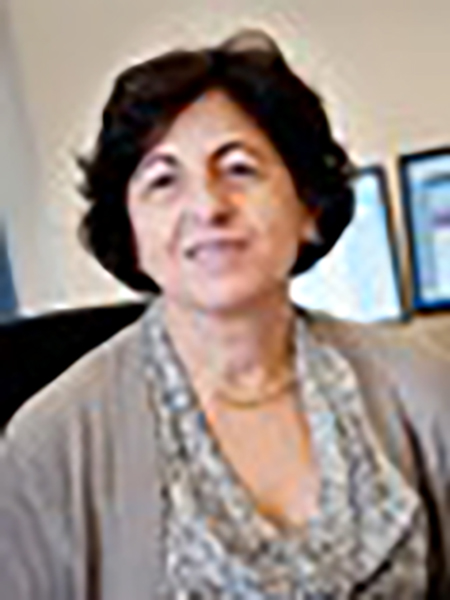
Elisa Bertino, Samuel D. Conte Professor of Computer Science
Ph.D. Computer Science, University of Pisa
Her recent research focuses on security and privacy of cellular networks and IoT systems, edge analytics, machine learning for cybersecurity, and policies for distributed system management. Elisa Bertino led the design of the LTE Inspector framework to test security properties of cellular networks leading to the identification of ten novel vulnerabilities in the 4G LTE standard, and the discovery of new privacy attacks in 4G and 5G cellular protocols. For this recent work, she was named twice to the GSMA Mobile Security Research Hall of Fame.
Prior to joining Purdue, she was a professor and department head at the Department of Computer Science and Communication of the University of Milan. She has been a visiting researcher at the IBM Research Laboratory (now Almaden) in San Jose, at Rutgers University, at Telcordia Technologies and a visiting professor at Singapore National University and Singapore Management University.
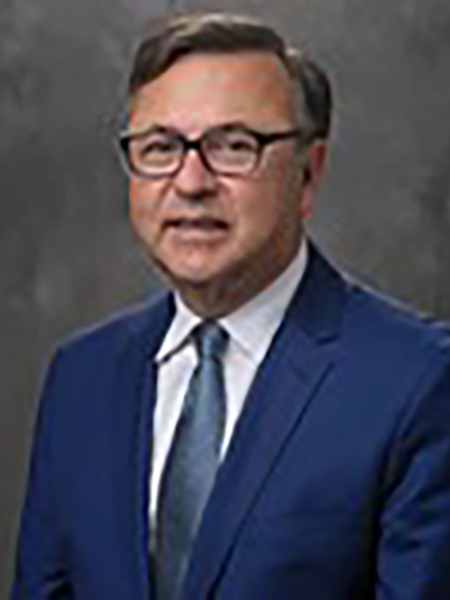
Mukerrem “Miko” Cakmak, Reilly Professor of Materials Engineering and Mechanical Engineering
B.S., Chemical Engineering, Technical University of Istanbul; M.S. and Ph.D., Polymer Engineering, University of Tennessee, Knoxville
He was one of the founders of the Polymer Engineering Department at University of Akron where he was named Harold A. Morton Chair and Distinguished Professor of Polymer Engineering. He recently was the founding director of the National Polymer Innovation Center where he developed roll to roll manufacturing lines for functional polymer films for a range of applications including membranes for batteries, biomedical devices such as an artificial pancreas, slow drug release platforms, flexible transparent electrodes for flexible electronics and flexible sensors.
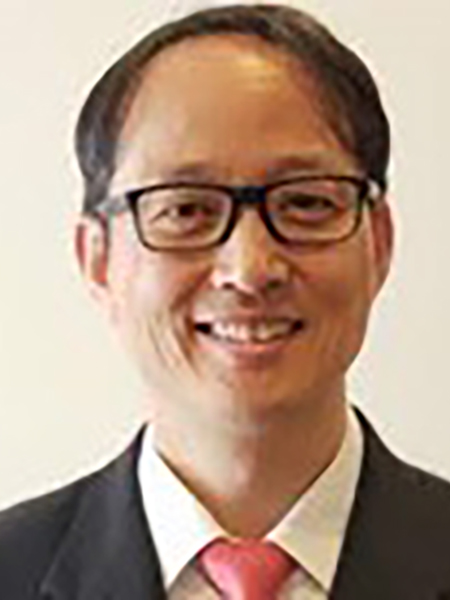
Martin Jun, Associate Professor of the School of Mechanical Engineering
B.A.Sc and M.A.Sc, University of British Columbia; Ph.D., University of Illinois-Urbana-Champaign
His research is in Smart Manufacturing and Digital Data Science, with extensive research experience in sensors, measurement and process modeling related to digital manufacturing.
Dr. Jun has authored over 115 peer-reviewed journal publications. He is an ASME fellow and also the recipient of the 2011 SME Outstanding Young Manufacturing Engineer Award, 2012 Canadian Society of Mechanical Engineers I.W. Smith Award for Outstanding Achievements, and 2015 Korean Society of Manufacturing Technology Engineers Damwoo Award.
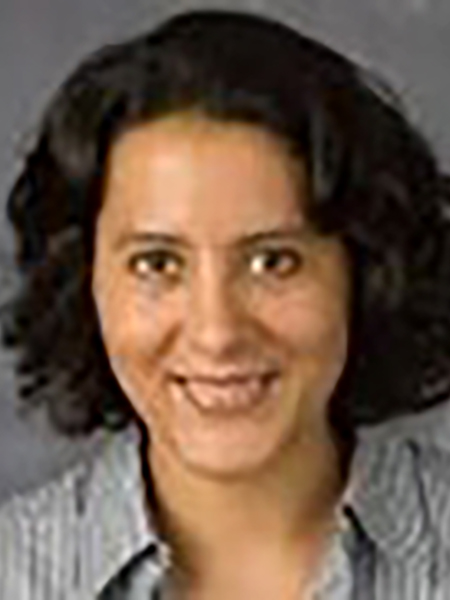
Alejandra J. Magana, W.C. Furnas Professor in Enterprise Excellence and Professor of Computer and Information Technology and Engineering Education (courtesy)
B.S. Information Systems and M.S. Electronic Commerce, Instituto Tecnologico y de Estudios Superiores de Monterrey D.F., Mexico City; M.S. Educational Technology and Ph.D. Engineering Education, Purdue University
Alejandra's research focuses on characterizing modeling and simulation practices in science and engineering. Her main goal is to understand under what conditions modeling, simulation, and visualization practices can support different forms of reasoning and learning. Similarly, she investigates how professors integrate these practices at the undergraduate level and how can they provide effective learning strategies and scaffolds that can result in deeper learning.
She conducted her post-doc in Engineering Education and Purdue's School of Engineering Education and Network for Computational Nanotechnology.
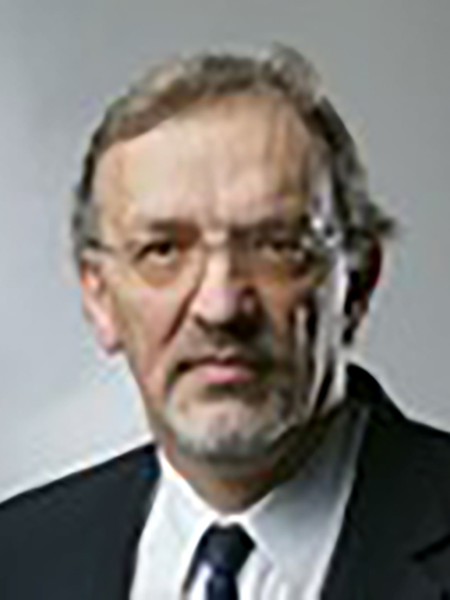
Jan-Anders Mansson, Distinguished Professor of Materials & Chemical Engineering
M.S., Mechanical Engineering and Ph.D., Polymeric Materials, Chalmers University of Technology, Gothenburg Sweden
Dr. Mansson's research is focused on novel cost-effective materials and manufacturing methods as well as unique additional functionalities, beyond the classical performance characteristics of composite materials. This research has led to over 600 scientific publications and a number of patents and patent applications.
Since 1990 he has been a Professor and the Laboratory Director at École Polytechnique Fédérale de Lausanne in Switzerland. In 2008 he became the President of International Academy of Sports Science and Technology, an International Olympic Committee. He has held positions as professor at the University of Washington, Seattle and at KTH in Stockholm Sweden and also served as Director and Vice President at École Polytechnique Fédérale de Lousanne.
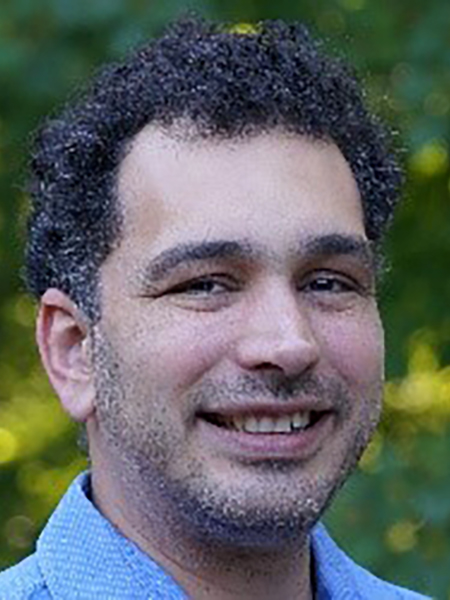
Bruno Ribeiro, Assistant Professor of Computer Science
B.S. Computer Science and M.S. Computer Engineering, Federal University of Rio de Janeiro; Ph.D., Computer Science, University of Massachusetts, Amherst
Dr. Ribeiro's research focuses on endowing machine learning algorithms with the ability to learn robust invariant representations (prior knowledge) for relational and temporal data for both associational and causal tasks. For instance, temporal and spatial invariances often imply stationarity, and robustness to adversarial attacks is an invariance to malicious perturbations. Whether designing recommender systems for social networks, building robots that can reason about the relationships between objects in their surrounding environment, learning to generate new drugs, learning causal relationships, or extracting logical rules from data examples, invariances are essential for robust automated learning. The outcome of Ribeiro's lab research has had far-reaching implications, from a principled framework to perform counterfactual tasks (predicting what-if scenarios), to endowing machine learning models with world-knowledge.
Dr. Ribeiro's research has received a number of best paper awards, an NSF CAREER award in 2020, and an Amazon Research Award in 2022.
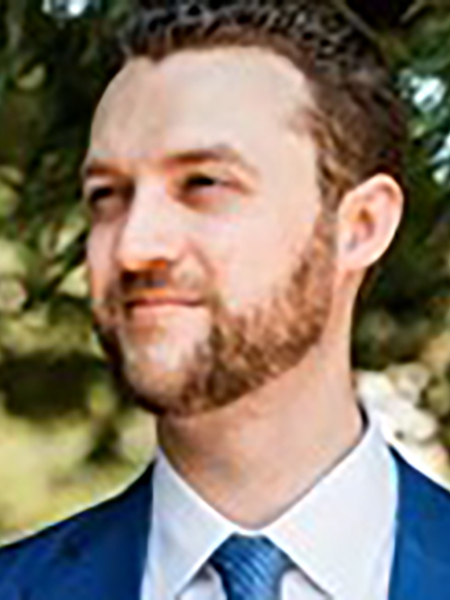
Daniel Schiff, Assistant Professor of Technology Policy
M.S. Social Policy, University of Pennsylvania. Ph.D. Public Policy, Georgia Institute of Technology
His research focuses on the responsible governance of AI through policy and industry, as well as AI's social and ethical implications in domains like education, labor, and criminal justice. Dr. Schiff's work examines topics including industry standards and best practices for AI ethics, public and elite opinion and influence dynamics in shaping the AI policy agenda, the development of social responsibility attitudes for future computing and engineering professionals, and the role of diverse stakeholder participation in fostering human-centered governance. Previously, he served as the Director of Research, Evaluation, and Planning at the Philadelphia Education Fund.
Harvard University
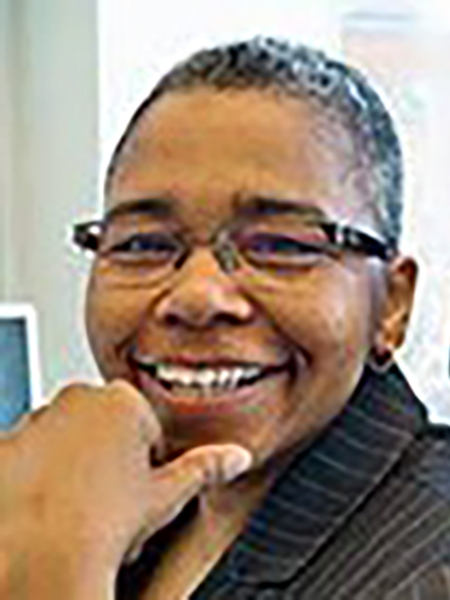
Latanya Sweeney, Professor of the Practice of Government and Technology at the Harvard Kennedy School and in the Harvard Faculty of Arts and Sciences, and director and founder of the Data Privacy Lab
Undergraduate degree, Computer Science, Harvard University; and Ph.D. in Computer Science, MIT in 2001, being the first black woman to do so.
Dr. Sweeney creates and uses technology to assess and solve societal, political and governance problems, and teaches others how to do the same.
She is the Editor-in-Chief of Technology Science, former Chief Technology Officer at the U.S. Federal Trade Commission and Distinguished Career Professor of Computer Science, Technology and Policy at Carnegie Mellon University. Latanya Sweeney has 3 patents, more than 100 academic publications, pioneered the field known as data privacy, launched the emerging area known as algorithmic fairness, and her work is explicitly cited in two U.S. regulations, including the U.S. federal medical privacy regulation (known as HIPAA). She is a recipient of the prestigious Louis D. Brandeis Privacy Award, the American Psychiatric Association's Privacy Advocacy Award, an elected fellow of the American College of Medical Informatics, and has testified before government bodies worldwide.
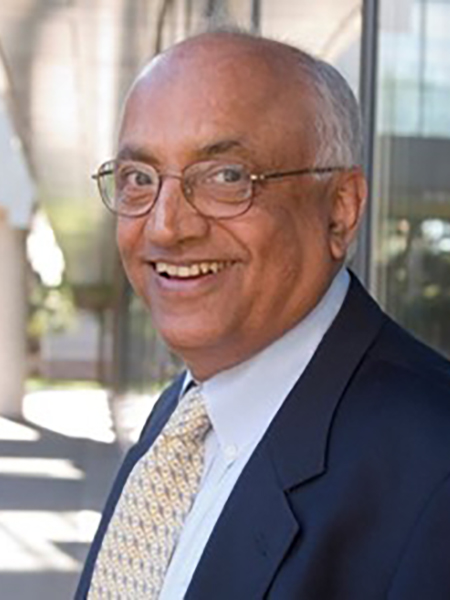
Venkatesh “Venky” Narayanamurti, Benjamin Peirce Research Professor of Technology and Public Policy
He is credited with developing the field of phonon optics—the manipulation of monoenergetic acoustic beams at terahertz frequencies—and is active in the field of semiconductor nanostructures.
He was previously the John L. Armstrong Professor and founding dean of the School of Engineering and Applied Sciences (SEAS), professor of physics, dean of physical sciences at Harvard, and, in 2009-2015, director of the Science, Technology and Public Policy Program at the Harvard Kennedy School. He was dean of the University of California, Santa Barbara (UCSB) College of Engineering (1992-1998), vice president for research at Sandia National laboratories (1987-1992), and spent much of his scientific research career at AT&T Bell Laboratories (1968-1987), where he became director of the Solid State Electronics Research Laboratory (1981-1987).
As dean of Harvard's SEAS for 10 years, he directed the renewal and expansion of the former division, its transition to a school, the recruitment of junior and senior faculty, and a 60 percent growth in sponsored research. He was an early champion of interdisciplinary initiatives and collaboration, reaching out to colleagues in the Faculty of Arts and Sciences as well as Harvard's Medical School, Business School, and School of Public Health to establish new partnerships. Under his leadership, SEAS faculty developed creative and innovative programs to attract students, including new courses of study in computer science, electrical engineering, and bioengineering at the graduate and undergraduate levels.
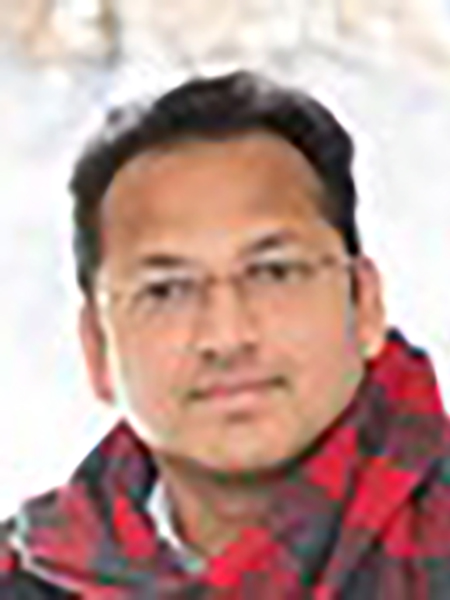
Vijay Janapa Reddi, Associate Professor in the John A. Paulson School of Engineering and Applied Sciences
B.S. Computer Engineering, Santa Clara University; M.S. Electrical and Computer Engineering, University of Colorado at Boulder; Ph.D. Computer Science, Harvard University
Beyond his technical research contributions, Dr. Janapa Reddi is passionate about STEM education at early age. He is responsible for the Austin Independent School District's “hands-on” computer science (HaCS) program, which teaches 6th- and 7th-grade students programming and the high-level principles governing a computing system using open-source prototyping platforms like Arudinos. Prior to joining Harvard University, he was an Associate Professor at The University of Texas at Austin. His research interests include computer architecture and runtime systems, specifically in the context of edge and mobile computing systems (smartphones, autonomous vehicles, aerial robots, etc.) to improve their performance, power efficiency, and reliability.
Dr. Janapa Reddi is a recipient of multiple honors and technical achievement awards, including the MICRO and HPCA Hall of Fame (2018 and 2019, respectively), the National Academy of Engineering (NAE) Gilbreth Lecturship Honor (2016), IEEE TCCA Young Computer Architect Award (2016), Intel Early Career Award (2013), Google Faculty Research Awards (2012, 2013, 2015, 2017), Best Paper at the 2005 International Symposium on Microarchitecture (MICRO), Best Paper at the 2009 International Symposium on High Performance Computer Architecture (HPCA), and IEEE's Top Picks in Computer Architecture awards (2006, 2010, 2011, 2016, 2017).
Tuskegee University
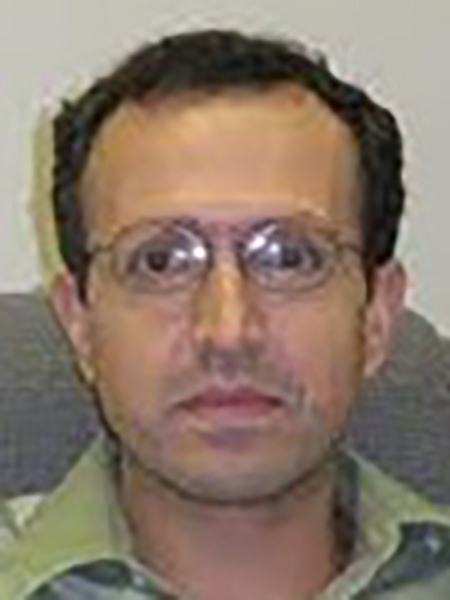
Firas Akasheh, Associate Professor, Mechanical Engineering
B.Sc. Mechanical Engineering, Jordan University of Science and Technology; Ph.D. Mechanical Engineering, Washington State University
His research interests are in Plasticity, Dislocation Dynamics, manufacturing processes, nanoscale metallic composites, computational solid mechanics, additive manufacturing, and engineering education. His teaching interests are in Dynamics, materials science and engineering, manufacturing, finite element method, computational methods, mechanical design.
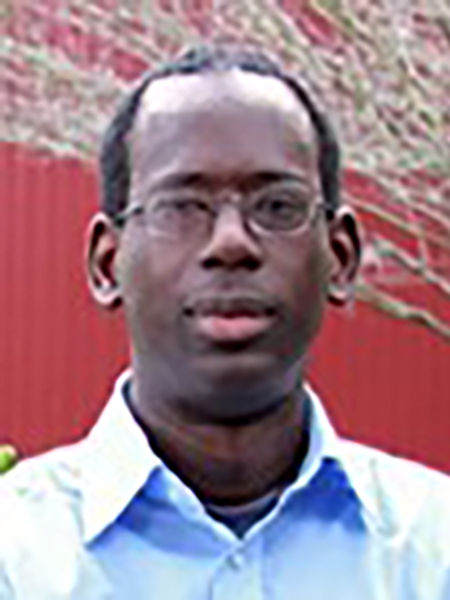
Mandoye Ndoye, Ph.D. Assistant Professor of Electrical and Computer Engineering
B.S.E.E. Rensselear Polytechnic Institute; M.S.E.E. Howard University; Ph.D. Electrical and Computer Engineering, Purdue University
His research interests center around signal and image processing, sensor data analytics, and intelligent infrastructure systems.
After completing his Ph.D. studies, he joined the Center of Applied Scientific Computing at Lawrence Livermore National Laboratory as a Research Staff Member. From 2012 to 2014, he was a Research Associate at Howard University.
Ivy Tech Community College
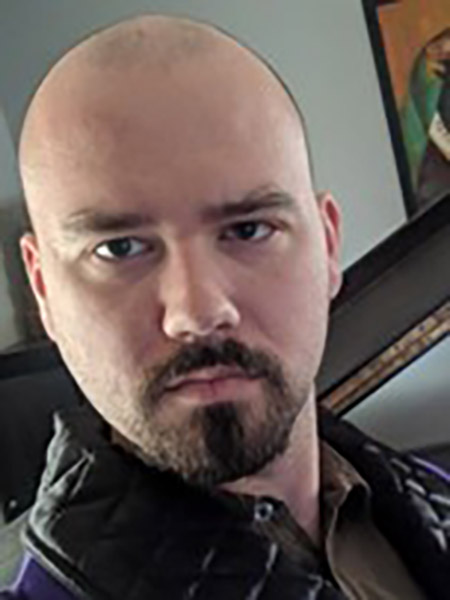
Jonathan Mohn, Instructor, School of Advanced Manufacturing, Engineering, Applied Sciences

Bryce Eaton, Program Chair of Smart Manufacturing and Digital Integration
Department Chair - School of Advanced Manufacturing, Engineering, Applied Science
Supervise the programs of Advanced Automation and Robotics Technology, Agriculture, Automotive Technology, Energy Technology, HVAC, Industrial Technology and Welding.
Purdue Staff
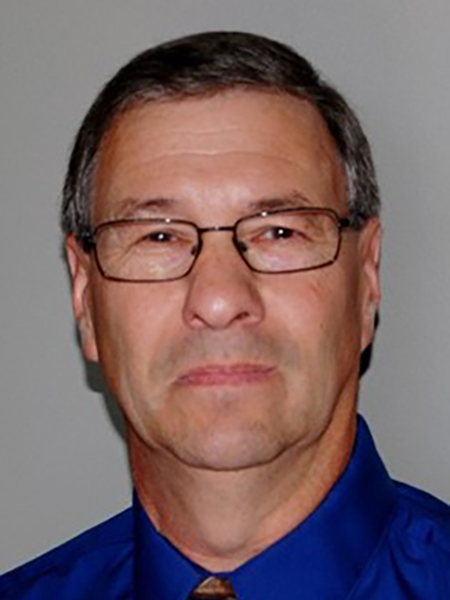
Ted Fiock, Managing Director for ManuFuture Today Network and SMART
B.S. Mechanical Engineering, Purdue University; M.S. Manufacturing Management, GMI Engineering and Management Institute (Now Kettering University)
As part of his work with WHIN, Ted engages with local farmers and manufacturers coordinating the promotion of IoT solutions and technologies offered by Purdue.
Prior to Joining Purdue in his current position, Mr. Fiock spent the majority o Mr. Fiock was raised on a rural Indiana farm, and currently both a farm owner and operator as part of a multi-family farming operation of nearly 2500 Acres. f his 35+ year career in manufacturing, having held engineering, engineering management, and executive management positions. Mr. Fiock has worked in large scale manufacturing environments as well as small privately held machine shop/engineering/equipment manufacturing companies. Raised on a rural Indiana farm, Mr. Fiock is currently both a farm owner and operator as part of a multi-family farming operation of nearly 2500 Acres.
\